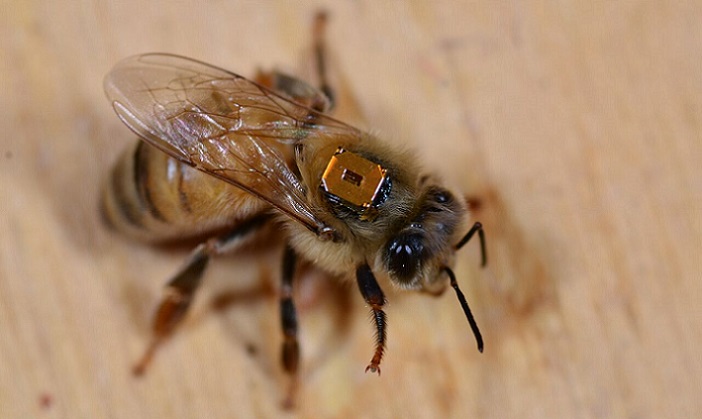Podcast: Play in new window

BOB HIRSHON (host):
Protecting pollinators from pesticides. I’m Bob Hirshon and this is Science Update.
Many pesticides are toxic to birds and other animals, including humans. So farmers have turned increasingly to neonicotinoids— pesticides chemically similar to nicotine that don’t directly harm birds or people. But in the journal Science, York University biologist Amro Zayed and his colleagues report that neonicotinoids can harm both honeybees and native bees, important pollinators already facing environmental threats.
Amro Zayed (York University, Toronto):
The first big thing we found was that worker bees that exposed to the pesticides lived about a week shorter. And that’s a big effect, almost a twenty-five percent reduction in lifespan.
HIRSHON:
Bees in most study sites showed other health effects as well. With so many beneficial insects now threatened by both pesticides and climate change, the work reinforces the importance of caution when it comes to pest management practices. I’m Bob Hirshon, for AAAS, the science society.
Story by Bob Hirshon
